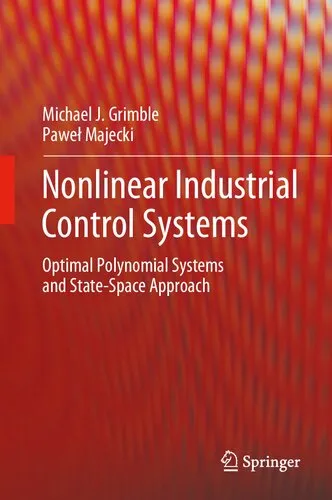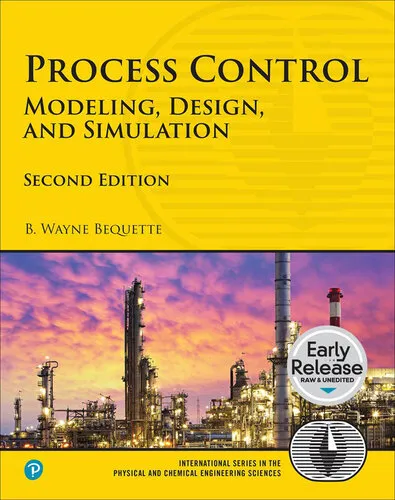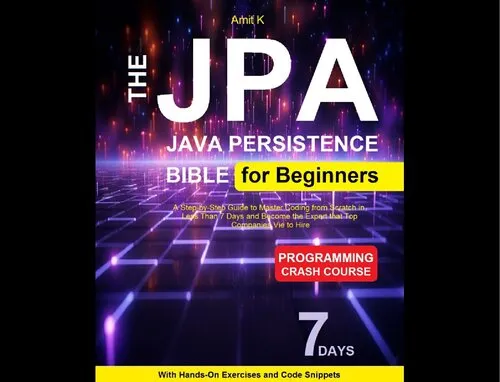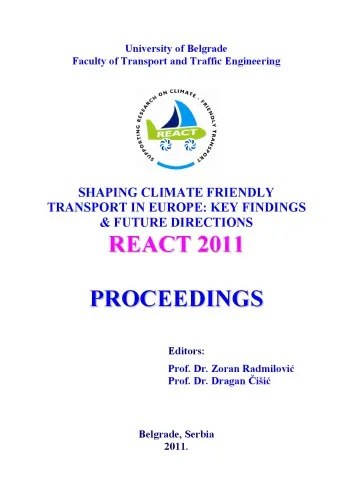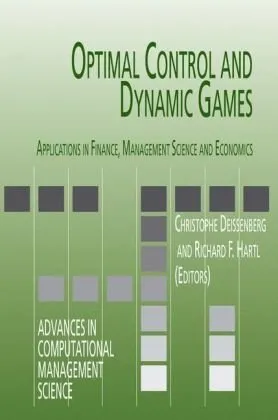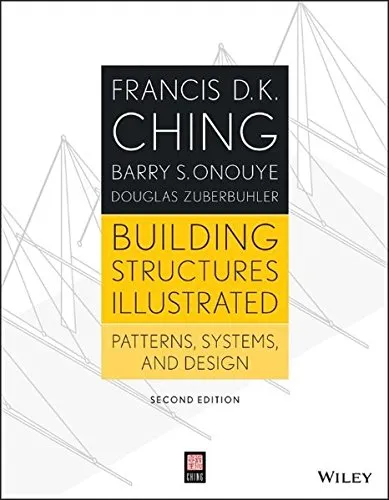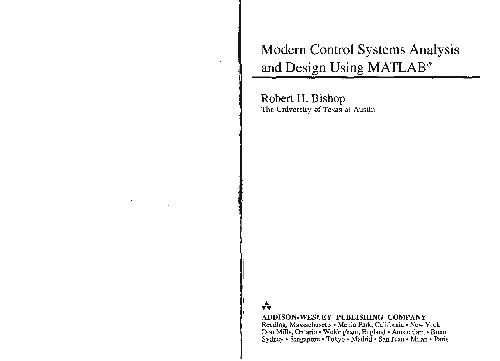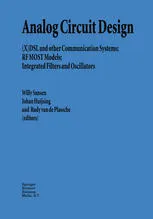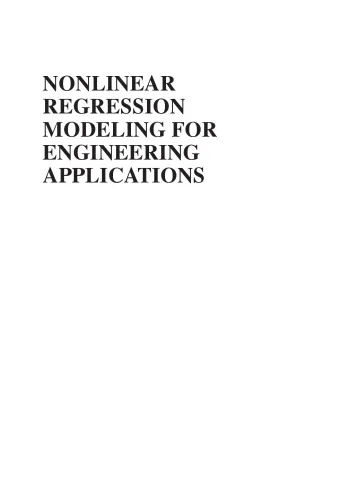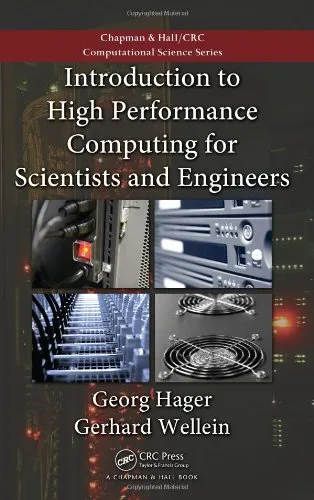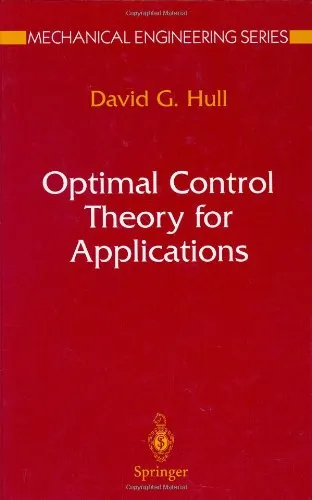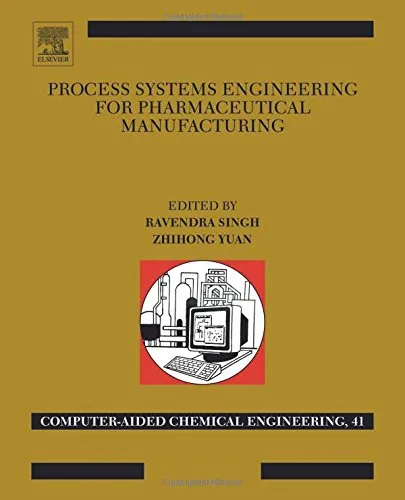Nonlinear Industrial Control Systems: Optimal Polynomial Systems and State-Space Approach
4.5
Reviews from our users

You Can Ask your questions from this book's AI after Login
Each download or ask from book AI costs 2 points. To earn more free points, please visit the Points Guide Page and complete some valuable actions.Related Refrences:
Introduction to Nonlinear Industrial Control Systems: Optimal Polynomial Systems and State-Space Approach
Nonlinear Industrial Control Systems: Optimal Polynomial Systems and State-Space Approach serves as a comprehensive resource for understanding and implementing advanced nonlinear control methodologies in industrial applications. Written by experts Michael J. Grimble and Paweł Majecki, this book merges rigorous academic theory with practical engineering insights to tackle real-world challenges in nonlinear control. Aspiring to bridge the gap between classical techniques and modern advancements, the book serves as both an educational textbook and a guide for industry professionals seeking innovative solutions.
The book focuses on two pivotal approaches in nonlinear control systems: polynomial systems and state-space methodologies. It explores these frameworks in detail, demonstrating their applicability to various industrial processes. By combining clarity, depth, and extensive examples, the authors provide readers with the tools to both understand theoretical principles and apply them to optimize system performance.
With industrial systems becoming increasingly complex and nonlinear in nature, traditional linear control methods often fall short. This book fills a critical gap in modern control engineering by equipping readers with cutting-edge strategies that address the dynamic, nonlinear behavior characteristic of today’s industrial environments.
Detailed Summary of the Book
The book begins by laying the groundwork for understanding nonlinear systems and their distinct characteristics, emphasizing why traditional linear approaches fail in certain scenarios. The early chapters introduce fundamental concepts, such as the nature of polynomial functions and state-space representations, gradually building toward their application in control systems.
Subsequent chapters dive deeper into optimal control methodologies, detailing how polynomial optimization is used to design controllers for nonlinear systems. Special attention is given to tackling problems like instability, parameter uncertainties, and external disturbances—real-world challenges faced by industrial engineers. Techniques such as Linear Matrix Inequalities (LMI), Lyapunov stability, and advanced computational algorithms are extensively discussed.
The state-space approach, another pillar of nonlinear control, is covered with equal rigor. Readers are guided through the nuances of modeling and solving dynamic systems using state-space formulations. Examples range from process industries to robotics, using case studies to highlight the practical advantages of state-space techniques over traditional methods.
The final chapters bring everything together, emphasizing multi-objective optimization, real-time feasibility, and hardware implementation in industrial settings. The book not only teaches advanced methods but also enables a seamless transition from theory to practice, a crucial aspect for today’s control system engineers.
Key Takeaways
- Comprehensive understanding of nonlinear control systems and their unique challenges in industrial applications.
- Deep exploration of polynomial-based optimal control methods with a focus on instability reduction and performance optimization.
- Clear guidance on leveraging state-space techniques for modeling and controlling complex dynamic systems.
- Practical case studies that bridge the gap between theoretical frameworks and real-world applications.
- Insights into modern computational tools and algorithms for solving nonlinear control problems.
Famous Quotes from the Book
"In an era of innovation and complexity, understanding the nonlinear dynamics of industrial systems is not just an option; it is a necessity."
"The power of polynomial optimization lies not only in its mathematical elegance but in its ability to transform industrial control into an art."
"State-space methods are the language of modern control systems, bridging theory with actionable engineering solutions."
Why This Book Matters
As industries evolve, their control systems demand greater sophistication and adaptability. The increasing prevalence of nonlinear behaviors in modern applications—from robotics to energy systems—makes traditional control methods insufficient. This book provides the foundation necessary to embrace nonlinear approaches, empowering engineers and researchers to develop robust, high-performance solutions.
Its significance extends beyond academia; it is a practical guide that offers engineers the tools to drive innovation within their organizations. By striking a balance between theoretical depth and application-focused insights, it stands out as a pivotal resource for anyone tackling the challenges of nonlinear industrial systems.
Furthermore, the inclusion of contemporary advancements like polynomial optimization and state-space formulations ensures the reader is equipped with current, future-ready skills. Whether you are a student, researcher, or practicing engineer, this book provides the knowledge and confidence to excel in nonlinear control engineering.
Free Direct Download
You Can Download this book after Login
Accessing books through legal platforms and public libraries not only supports the rights of authors and publishers but also contributes to the sustainability of reading culture. Before downloading, please take a moment to consider these options.
Find this book on other platforms:
WorldCat helps you find books in libraries worldwide.
See ratings, reviews, and discussions on Goodreads.
Find and buy rare or used books on AbeBooks.
1386
بازدید4.5
امتیاز0
نظر98%
رضایتReviews:
4.5
Based on 0 users review
Questions & Answers
Ask questions about this book or help others by answering
No questions yet. Be the first to ask!
